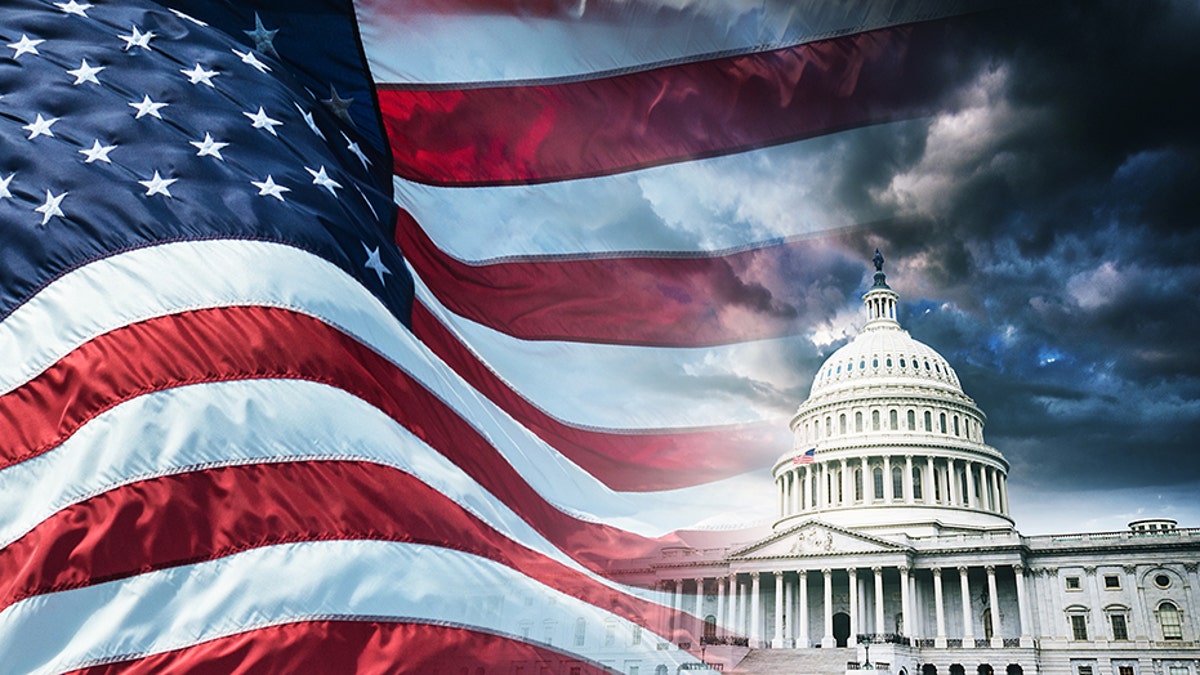
capitol building in washington dc with us flag (iStock)
When ObamaCare was signed into law, Americans were promised access to health insurance plans they liked and could afford. Instead, 28 million Americans have been left uninsured – priced out of the individual market, where premiums have more than doubled over the past five years.
In my home state of Missouri, 97 out of 114 counties have only one insurer offering plans on the ObamaCare exchanges this year. Americans need more affordable options. The Trump administration’s recent expansion of access to short-term, limited-duration health insurance plans is a big step in the right direction.
Short-term health insurance plans provide affordable, individualized options for people who are between jobs, taking time off to care for a sick family member, or can’t afford the few options available to them on the exchanges.
For example, I recently heard from a constituent in Kansas City, Missouri whose COBRA coverage from her previous job will be ending. She signed up for a plan on the exchange, but it will be a month before her coverage on the exchange begins. A short-term plan will allow her to maintain coverage during the gap.
Under the Trump administration’s new rule, Americans will soon be able to buy short-term, limited duration health insurance plans that last up to one year, with the option to extend coverage for up to 36 months.
According to Department of Health and Human Services Secretary Alex Azar, the cost of these plans could be as much as 50 to 80 percent cheaper than plans on the ObamaCare exchanges, and are expected to benefit more than 1 million people.
Allowing Americans to purchase short-term health insurance coverage is far from unprecedented. These plans have been available for decades, including during much of the Obama administration.
It wasn’t until the end of 2016 that the Obama administration limited the maximum duration of these plans to just three months in an effort to prop up the health-care exchanges.
However, forcing people into a failing system is not a solution. As insurance premiums keep skyrocketing, Americans continue leaving the exchanges. Last year enrollment on the exchanges for people who didn’t qualify for subsidies dipped by 20 percent.
Critics of the Trump administration’s new rule point to the fact that short-term health insurance plans are exempt from the full array of ObamaCare-mandated benefits. However, states will still be allowed to regulate these plans and ensure they meet the needs of consumers.
The plans also give people more flexibility to choose coverage options that are best for them, without having to pay for benefits they will never use.
Nine out of 10 Americans who purchase plans on the exchanges qualify for subsidies, and would be unlikely to leave the exchanges and lose that benefit. Short-term plans simply offer more options to people who don’t qualify for subsidies and can’t access or afford the individual plans available to them.
Expanding access to short-term health insurance plans marks another step the Trump administration is taking to help Americans who are struggling to find affordable health-care options. In June, the administration expanded access to association health plans, which allow small business owners and sole proprietors to pool together to negotiate lower prices and better options from insurance companies.
According to the Congressional Budget Office, approximately 4 million Americans – including 400,000 who would not otherwise be insured – are expected to enroll in association health plans.
Expanding access to short-term health insurance plans and association health plans goes a long way toward providing health insurance coverage to the millions of Americans who are uninsured. It’s a good start, and I look forward to continuing to work with the administration to improve access to affordable health care.








































